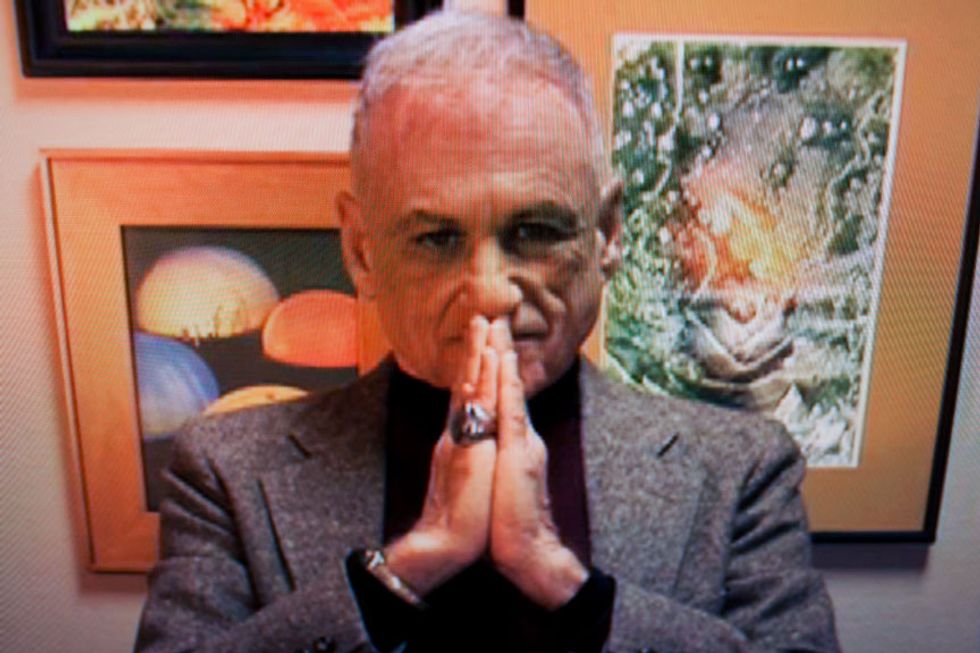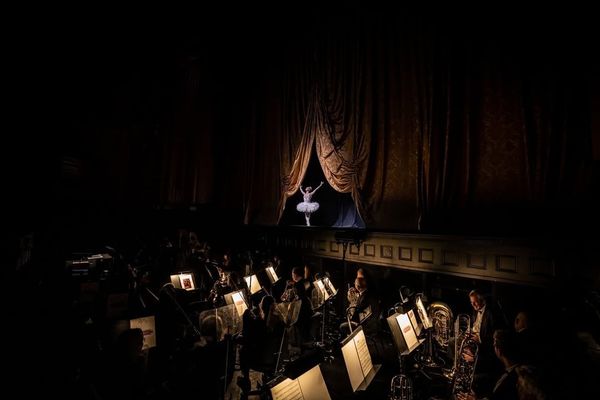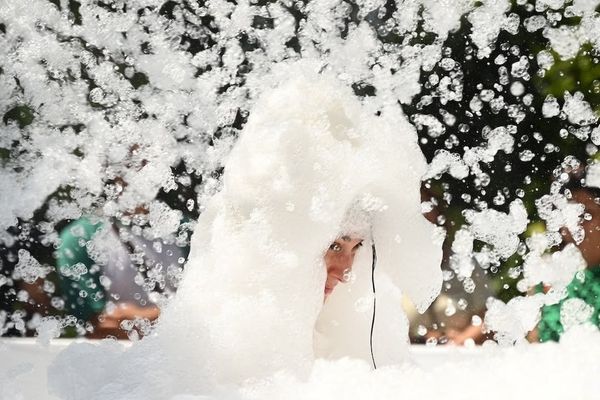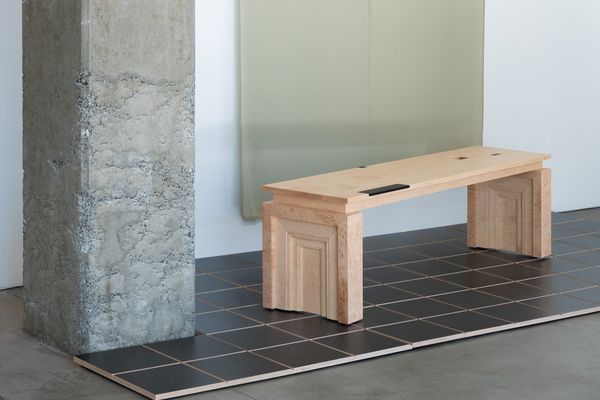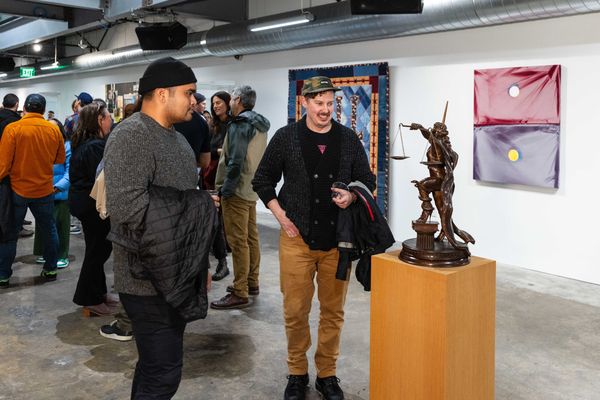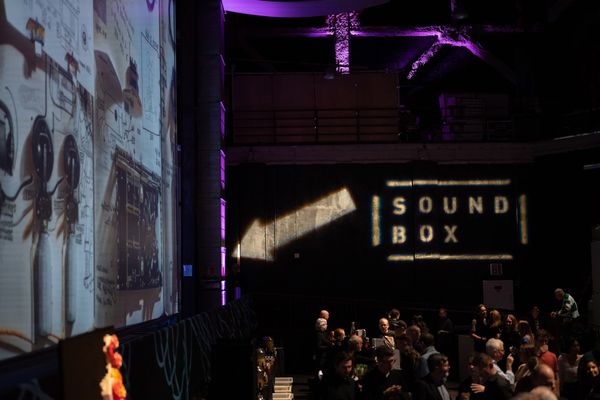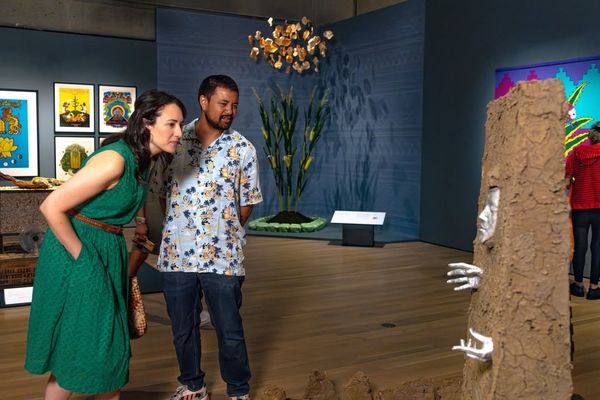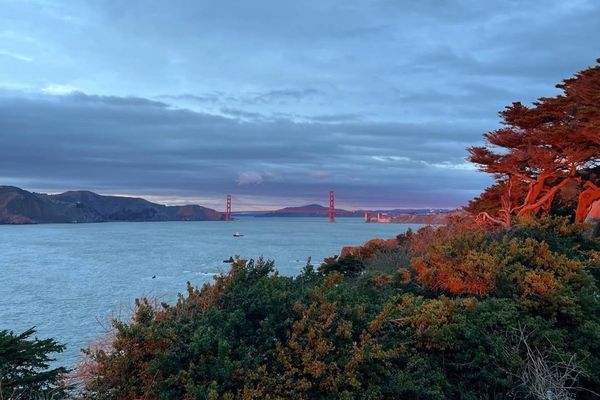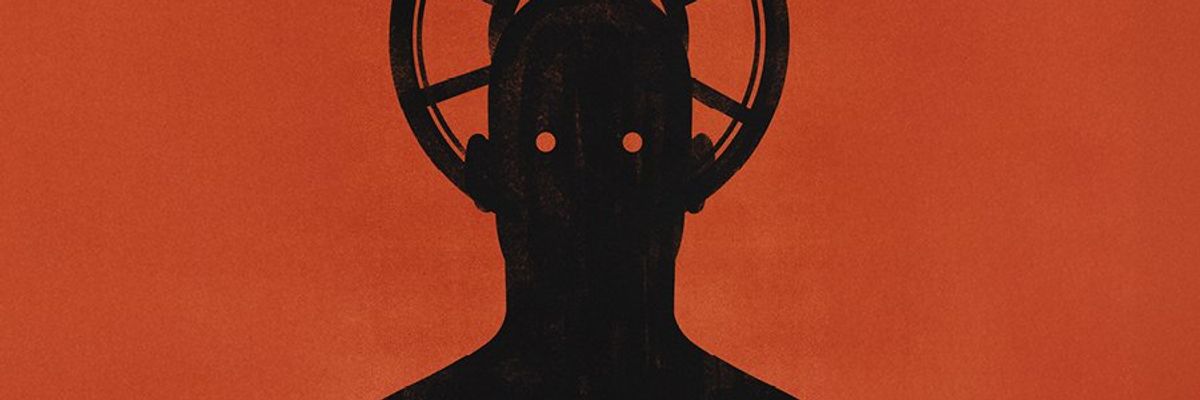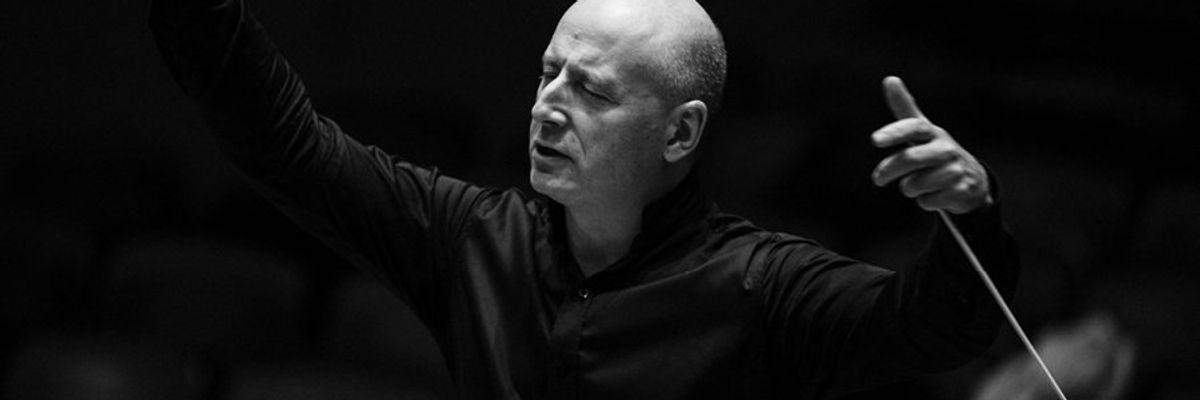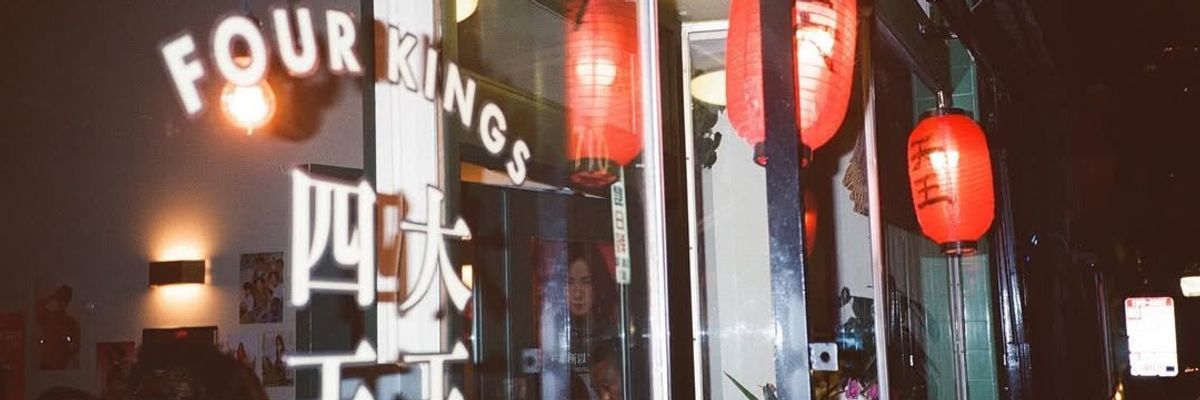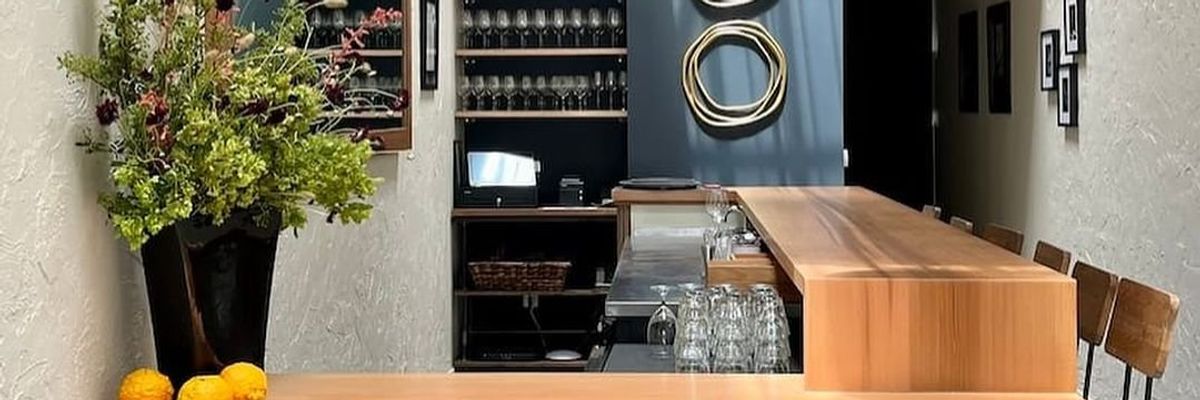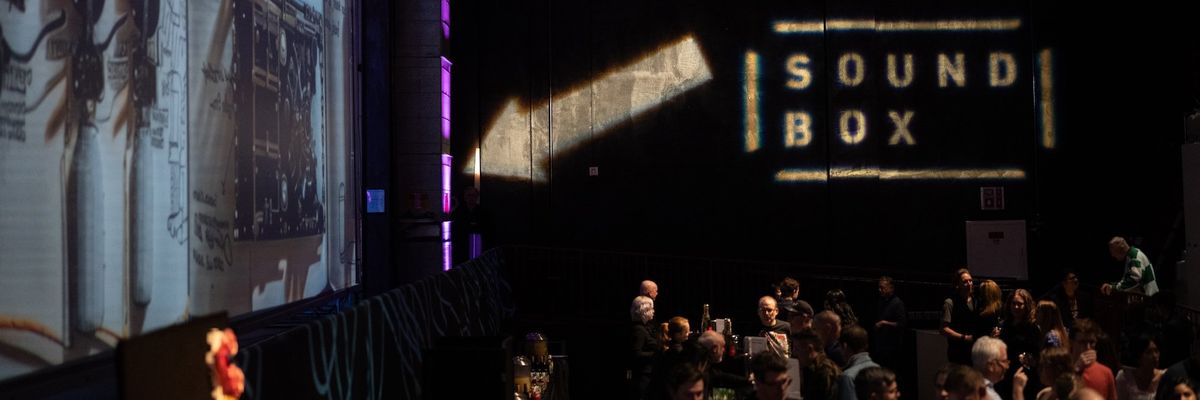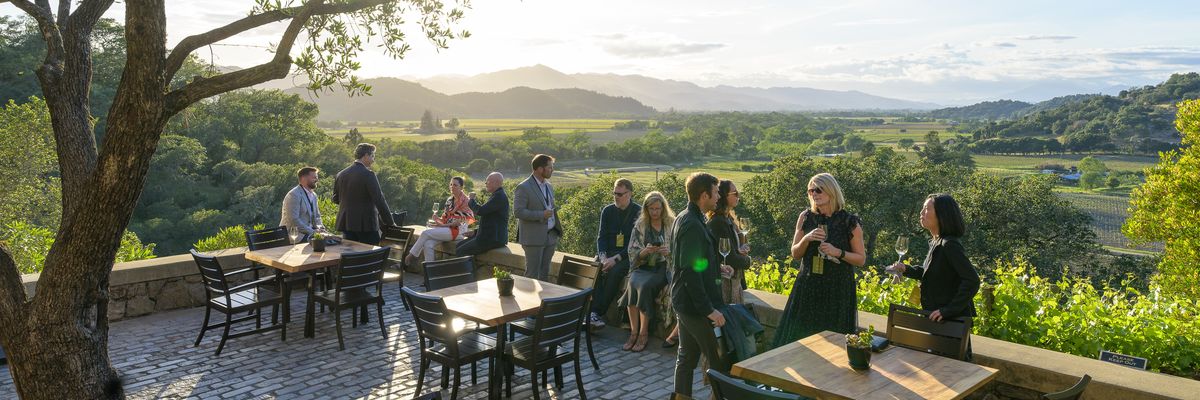Welcome to "On Location," a micro-feature taking you to little-known cinematic locations of SF and taking a look at the films shot in the city by the bay over the years. This week we head to the Mill Valley Film Festival for an interview with Spencer McCall, director of the local doc The Institute.
If you've lived in the Bay for a few years now, you may have heard the names JeJune, Elsewhere Public Works Agency or Octavio Coleman, Esq. muttered by acquaintances, or seen them written on cryptic flyers as you passed by. You may have even participated in one of their seminars, or been through an "induction" in their downtown center. Spencer McCall's documentary The Institute delivers a beguiling glimpse inside the Alternate Reality universe the Bay Citizen aptly dubbed "one of the best worst-kept secrets in the Bay Area," which centered around the fictional JeJune Institute an organization/self-help group/cult which impresario Jeff Hull created and operated in and around San Francisco from its outset in 2008 to its final, peculiar climax in 2011.
Himself one of the hundreds of people who were obliquely involved in realizing Hull's vision, McCall's backstory itself sounds like it could be a snippet of JeJune lore.
"Originally I got out of school and was doing corporate video and I ended up working for a dog cloning company in Marin, which was called BioArts, originally called Genetic Savings and Clone," he tells me at a booth in the Richmond's Toy Boat Cafe late Wednesday night. "I followed them around doing propaganda videos about how cloning isn't evil. It cost $150,000 a dog, and eventually they went out of business."
Fittingly, he stumbled upon his relationship with JeJeune by chance, as many did. "After that I went on Craigslist and found this really cryptic, bizarre post saying that 'we have these video projects we need done, let's talk.' I applied, and never heard back. But then through Gordo, who you see in the film, I connected with them a few months later. I did about five or six assignments for them, and like everyone else involved, things were never explained."
It's a vexing item to capture in a documentary–the actual experience of a thing–but McCall's film does an admirable job of replicating the wonder of the JeJune experience from the inside, splitting time between reality-blurring footage culled from his own and player archives and interviews with participants and creator Jeff Hull. "The original concept for the doc was that I would just follow the journey taken by the players, most of whom never knew what the reality was." He said. "There were two stories I could have told and I found a lot of it [happening behind the scenes] very interesting–what they were trying to do and why they were doing this. They never charged anyone any money and everyone kept asking "Why? Why? Why?"
"I know that it kills some of the mystery, when you reveal the wizard behind the curtain," he says. "However, when I started to dig a little deeper into Jeff's backstory, I discovered something very interesting, which was part of my reasoning–the disappearance of someone who went on to be renamed (in game space) Ava Lucian. I felt like if I didn't take people behind the curtain that they would dismiss the whole thing as fake, but the Ava Lucian portions are actually based in reality, on the disappearance of a real girl in San Francisco in the 1980s."
Since I live only a few blocks away from Spencer and I noticed a few Richmond-situated pick-up shots in The Institute, I decided to tell him about this column and how I try to tease out city locations that other people don't always notice. As it turns out he shares my preoccupation with San Francisco's duskier corners.
"That's what got me obsessed with in the situation [of JeJune]. I take the bus to work, and then home, I'm stuck in this little guy (pointing to his iPhone) and I'm just… in my own little world. And I started to realize that if I just looked around and experienced the art that's inherent in the city, I could start to see some really cool stuff.
"I think that San Francisco is a pretty secular city, and it's easy to ignore a lot of magic in the world. I think that the Jejune institute and Alternate Reality Games in general encourage people to open their eyes and participate in the environment that they're in, to learn that you can take advantage of a lot more of life than you do. And if you choose to, you might get rewarded with some pretty valuable things."
The Institute premieres next Thursday at the Mill Valley Film Festival. Tickets and Times here.



